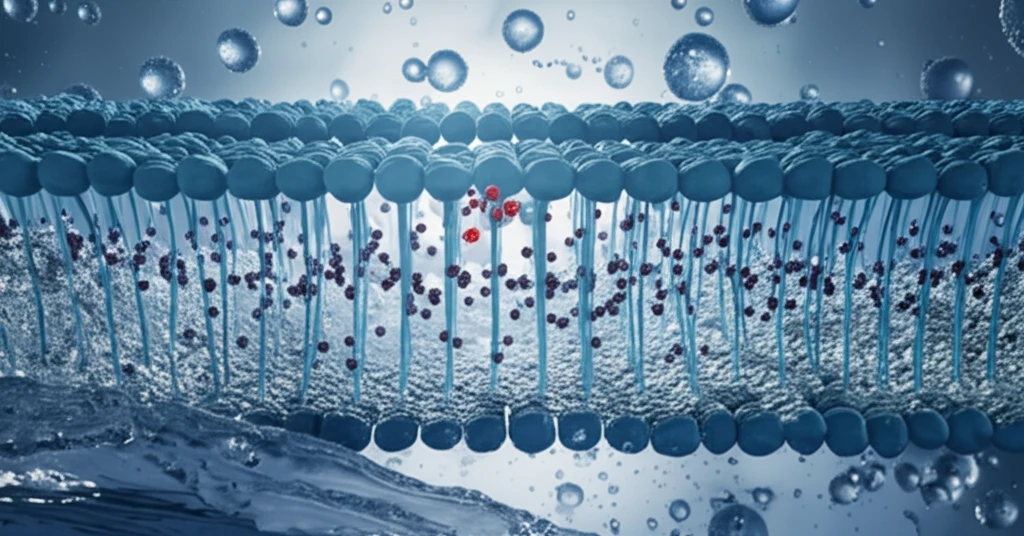
Purifying the Unseen: How Advanced Membranes are Revolutionizing Water Treatment
"Discover how cutting-edge membrane technology is transforming wastewater into a valuable resource, ensuring cleaner and sustainable water solutions."
The oil and gas industry, a cornerstone of modern economies, inevitably generates significant volumes of produced water as a byproduct. This water, laden with a complex mix of hydrocarbons, dissolved solids, and various contaminants, poses a substantial environmental challenge. Traditional treatment methods often fall short in effectively removing these pollutants, leading to potential ecological damage and resource wastage.
In response to these challenges, researchers and engineers have turned to advanced membrane technologies, offering a promising pathway to transform this industrial wastewater into a usable resource. Among these technologies, membrane filtration stands out for its ability to selectively remove contaminants at a microscopic level, providing a purified water stream suitable for various applications.
This article delves into the groundbreaking research on polyethersulfone (PES) membranes modified with nano-ZnO particles. These innovative membranes demonstrate enhanced antifouling properties and improved separation performance, paving the way for more efficient and sustainable produced water treatment. By exploring the science behind these advancements, we uncover the potential to revolutionize water management in the oil and gas sector and beyond.
What Makes PES-Nano ZnO Membranes a Game Changer?

Traditional methods for treating produced water, such as settling tanks and chemical treatments, often struggle to remove the wide array of contaminants present effectively. Membrane technology, particularly nanofiltration, offers a more precise and efficient solution by acting as a selective barrier, separating water molecules from pollutants based on size and charge.
- Enhanced Hydrophilicity: Nano-ZnO increases the membrane's affinity for water, allowing for faster and more efficient water permeation.
- Antifouling Properties: The nano-ZnO particles disrupt the adhesion of contaminants, reducing fouling and maintaining membrane performance over longer periods.
- Improved Separation: The modified membrane exhibits a finer pore size and enhanced selectivity, leading to more effective removal of pollutants.
A Sustainable Future, Filtered Through Innovation
The development and application of PES-nano ZnO membranes represent a significant step forward in sustainable water management. By transforming industrial wastewater into a usable resource, this technology not only protects our environment but also contributes to a more resilient and water-secure future. As research continues and these membranes are implemented on a larger scale, we can expect to see a profound impact on industries worldwide, paving the way for a cleaner, healthier planet.
